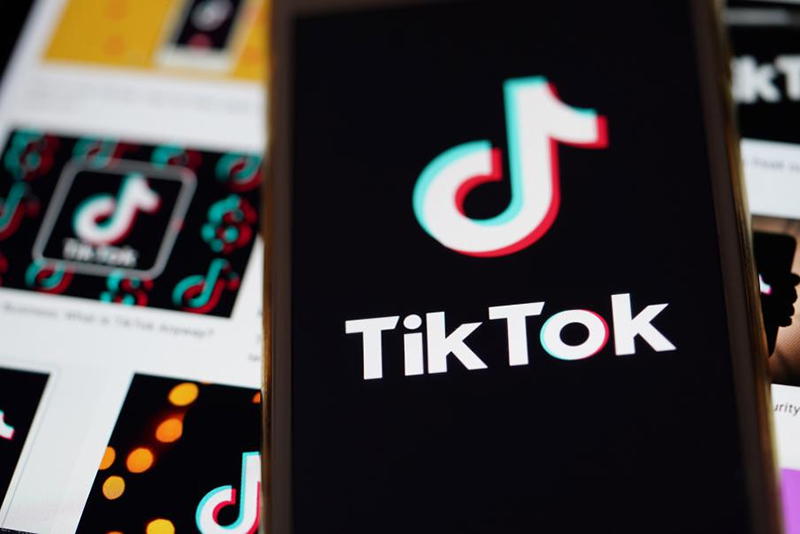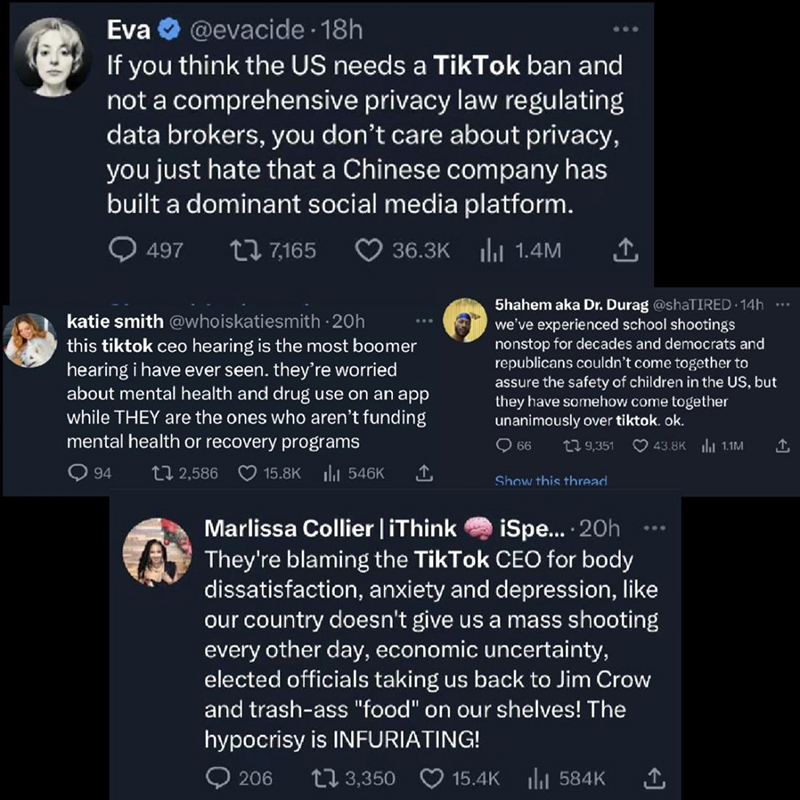
By Zhu Jing, Gao Shanshan
Three key words made headlines of most major media outlets on March 24: U.S. lawmakers, grill, and TikTok.
Amid calls from U.S. politicians to ban the app nationwide addressing national security issues, TikTok CEO Shou Zi Chew testified before the House Energy and Commerce Committee on the previous day.
It took more than five hours for the Singaporean CEO to explain that neither ByteDance, TikTok's parent company, nor the Chinese government has been using the app to collect data from American users.
But Chew was repeatedly required to answer only “Yes or No,” and was constantly interrupted by questions such as “Mr. Chew, does TikTok access the home WiFi network?”
John McKinnon, a tech policy reporter with the Wall Street Journal,said he “was really surprised to hear so many unfriendly questions from so many lawmakers in a row.”
In a statement after the hearing, TikTok spokesperson Brooke Oberwetter said: “Shou came prepared to answer questions from Congress, but, unfortunately, the day was dominated by political grandstanding that failed to acknowledge the real solutions already underway through Project Texas or productively addressing industry-wide issues of youth safety.”
It was echoed by numerous netizens whether they are TikTok users or not on different social media platforms.
Twitter user @evacide said what the U.S. needs is a comprehensive privacy law regulating data brokers, but not the hatred of a Chinese company that built a dominant social media platform.

It was not the first time that people read headlines constituted by these keywords. The witch-hunt against the popular video-sharing app traced back to the Donald Trump era in 2020.
Even though Joe Biden revoked his predecessor’s executive order that sought to ban the app shortly after taking office, his administration made a U-turn in recent months, by demanding that the video app divest itself from its Chinese parent or face a U.S. ban.
Despite the fail to produce evidence that ByteDance has ever exploited American users' data, the U.S. government has introduced a bipartisan bill - the RESTRICT Act, which would enable its Commerce Secretary to ban foreign technology companies, including TikTok.
Carme Ferre-Pavia, professor of communication studies at the Autonomous University of Barcelona, said she didn’t see a difference in nature between TikTok and Facebook or WhatsApp.
It’s not clear yet how the hearing will translate into action. Either a forced sale or a nationwide ban is an interference with the normal operations of relevant enterprises in the U.S. and violates the principles of fair competition and free trade in the market economy.
The hegemonic logic of the U.S. administration only sets a dangerous precedent for the future of the U.S. market and will eventually backfire.








 公安备案号:32010202010067
公安备案号:32010202010067